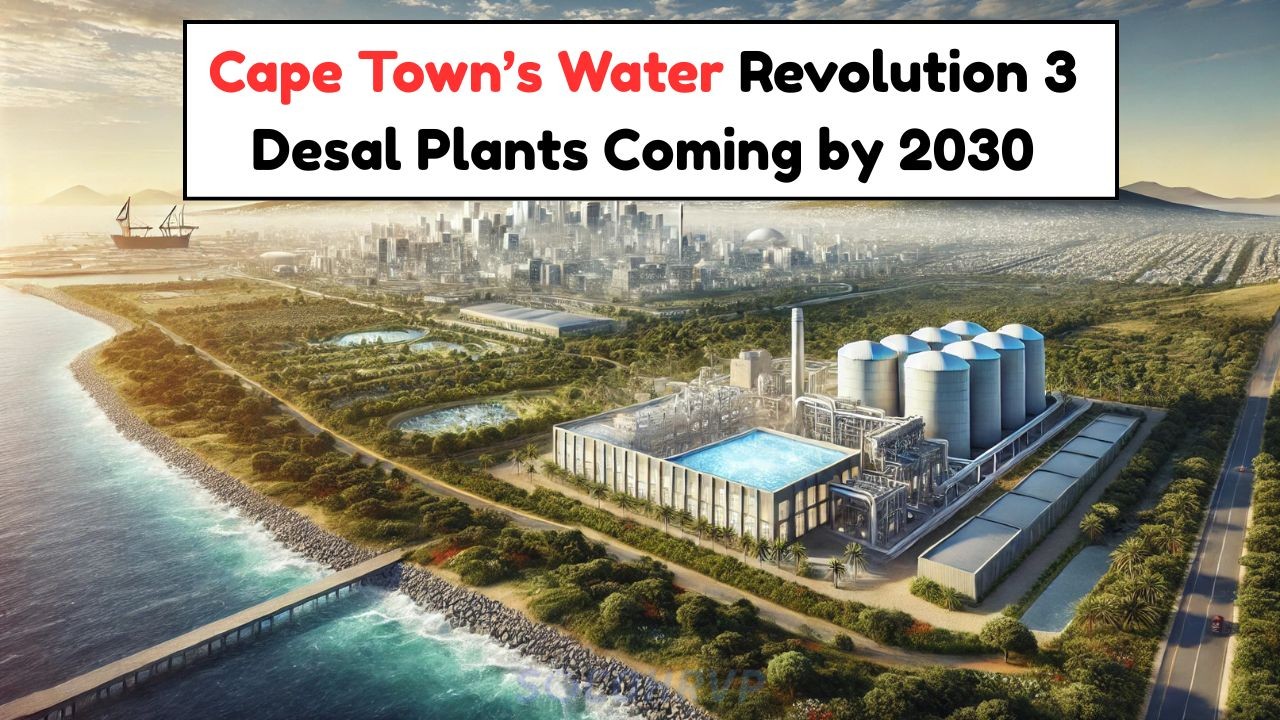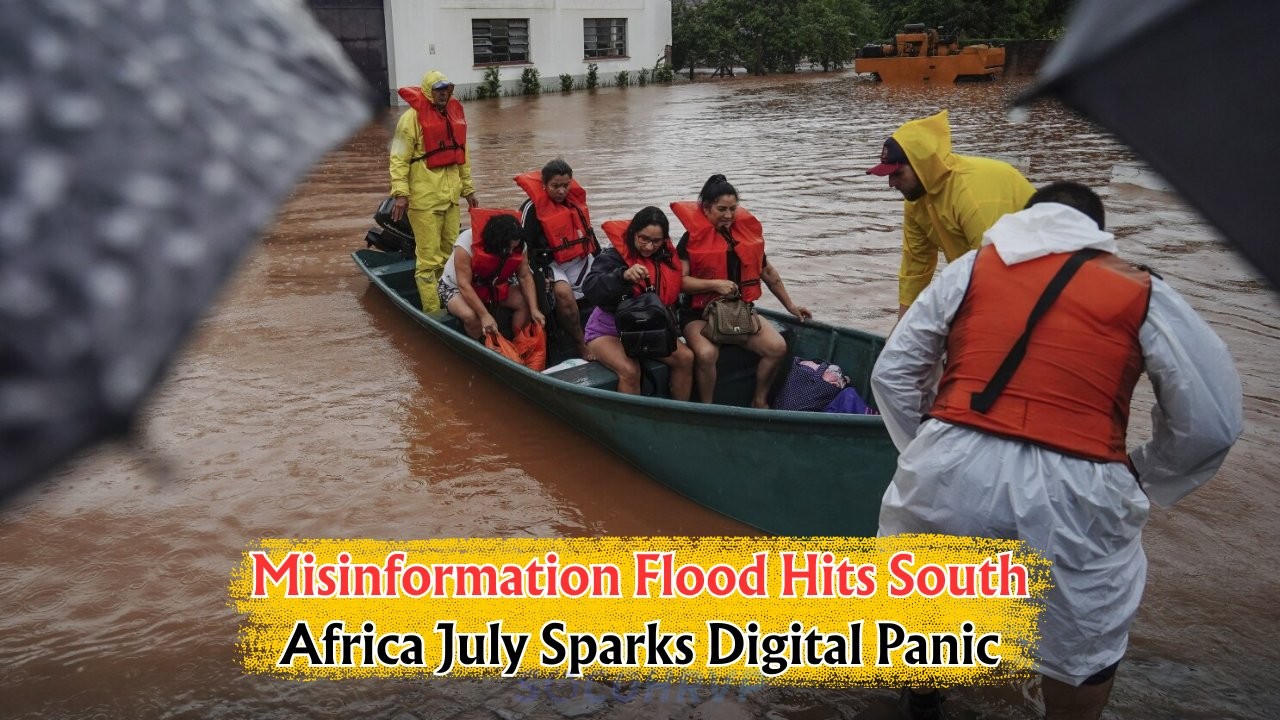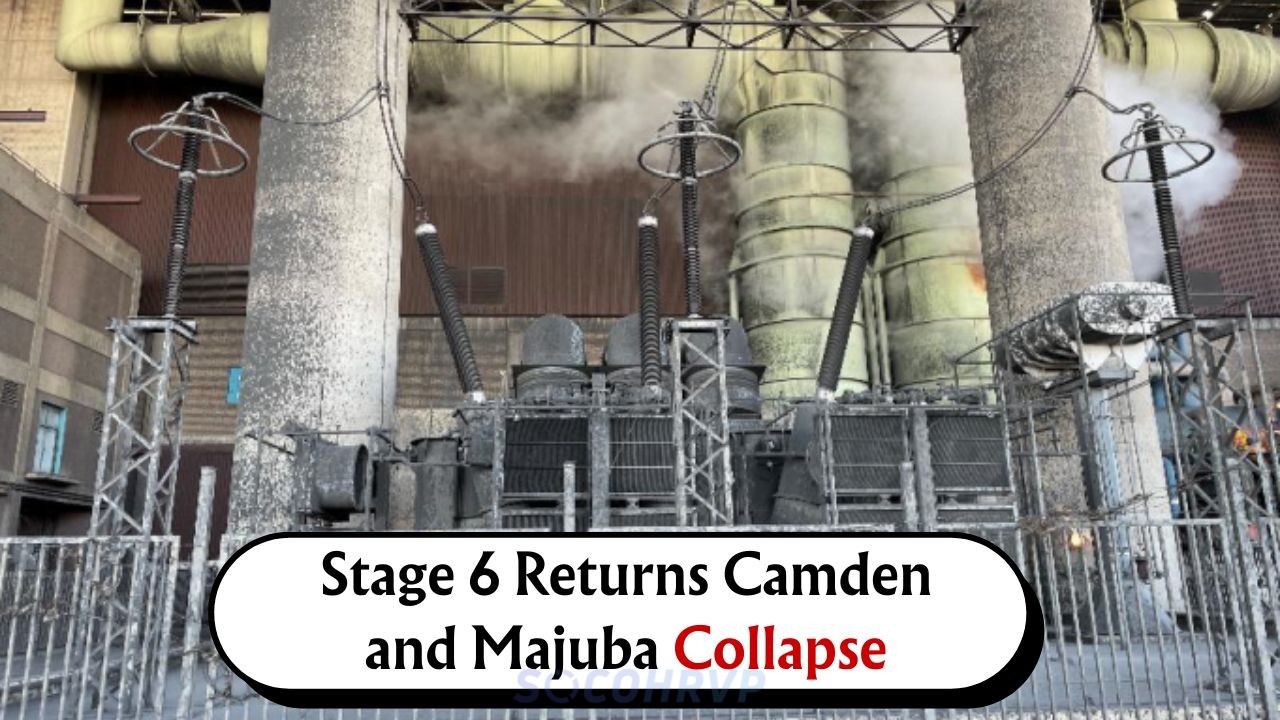Cape Town’s New Desalination Plants: As Cape Town embarks on an ambitious journey with the construction of three new desalination plants, the question on everyone’s mind is whether this bold move will finally bring down the notoriously high water bills that residents have been grappling with for years. Desalination, a process that converts seawater into potable water, is being viewed as a potential game-changer in a city often plagued by droughts and water restrictions. While the promise of increased water supply is appealing, it remains to be seen if these facilities will effectively reduce costs and meet the city’s growing demand.
Understanding Desalination: Benefits and Challenges
Desalination is a process that has been adopted globally as a solution to water scarcity, particularly in arid regions. The primary benefit of desalination is its ability to provide a consistent water supply regardless of weather conditions, which is crucial for Cape Town given its recent history of droughts. However, the technology does come with its set of challenges. The most significant is the high energy consumption required to desalinate seawater, which can make the process expensive. Additionally, the environmental impact of brine disposal, a byproduct of desalination, raises concerns about marine ecosystems. Despite these challenges, Cape Town’s decision to invest in desalination plants reflects a strategic move towards securing water resources for the future.
- Provides a reliable water source
- Reduces dependency on rainfall
- Potentially lowers long-term water costs
- Addresses growing urban demand
- Requires substantial energy input
- Environmental concerns with brine disposal
Impact on Cape Town’s Water Bills
The implementation of desalination plants in Cape Town holds the potential to stabilize water tariffs in the long run. Currently, the city’s water bills are influenced by supply shortages and the cost of maintaining aging infrastructure. By introducing a new and reliable water source, the city hopes to mitigate these issues and eventually lower consumer costs. However, the initial investment required for the construction and operation of these plants, coupled with ongoing maintenance expenses, may mean that residents won’t see immediate reductions in their bills. The success of this initiative will largely depend on how efficiently these plants are managed and integrated into the existing water distribution network.
| Factor | Current Impact | Post-Desalination Impact |
|---|---|---|
| Water Availability | Seasonal | Year-round |
| Water Costs | High | Potentially Lower |
| Infrastructure | Aging | Modernized |
Timeline for Desalination Plant Projects
Establishing desalination plants is a complex undertaking that involves various stages of planning, construction, and testing before they can become fully operational. For Cape Town, the timeline for these projects is expected to span several years, with the first plant projected to come online by 2025. The phased approach allows for lessons learned from each stage to be applied to subsequent projects, enhancing efficiency and effectiveness. During this period, residents are encouraged to continue practicing water conservation to alleviate immediate pressure on existing resources. The city’s administration has emphasized transparency throughout this process, ensuring that the public is kept informed of developments and any implications for water tariffs.
- Initial planning and site selection
- Environmental impact assessments
- Construction commencement
- First plant operational by 2025
- Phased implementation for subsequent plants
Community Response and Expectations
The announcement of the desalination projects has elicited mixed reactions from Cape Town’s residents. While many are optimistic about the potential for improved water security, others remain skeptical about the actual impact on water bills. Public forums and discussions have been held to address these concerns, providing a platform for citizens to voice their opinions and seek clarity from officials. The city’s commitment to engaging with the community highlights the importance of public support in the success of these projects. As Cape Town navigates this transition, maintaining transparency and open communication will be critical to managing expectations and building trust.
| Community Feedback | Response |
|---|---|
| Optimism | Hope for lower bills |
| Skepticism | Concerns over costs |
| Engagement | Public forums held |
| Trust | Transparency emphasized |
Comparing Desalination with Other Water Solutions
As Cape Town explores various strategies to tackle its water challenges, desalination is just one of several options on the table. Alternative solutions include rainwater harvesting, groundwater extraction, and enhancing water recycling programs. Each option comes with its own set of advantages and drawbacks, making it essential for the city to adopt a multifaceted approach. Desalination offers a reliable source but is energy-intensive and costly. Rainwater harvesting is environmentally friendly but weather-dependent. Groundwater extraction can deplete resources if not managed sustainably, while recycling programs require significant infrastructure upgrades. By diversifying its water management strategies, Cape Town aims to build a resilient system capable of withstanding future challenges.
- Desalination: Reliable but costly
- Rainwater harvesting: Eco-friendly, weather-dependent
- Groundwater extraction: Sustainable management needed
- Water recycling: Infrastructure investment required
FAQs on Cape Town’s Desalination Plants
| Question | Answer |
|---|---|
| When will the first desalination plant be operational? | By 2025 |
| How will desalination affect water bills? | Potential for lower bills in the long run |
| What are the environmental concerns? | Brine disposal impacts marine life |
| Will there be public consultations? | Yes, forums are being held |
Exploring the Future of Water Management in Cape Town
As Cape Town moves forward with its desalination projects, the city is setting a precedent for innovative water management in South Africa. The initiative represents a significant investment in the future, aimed at ensuring sustainable water supply amidst changing climate conditions. While challenges remain, particularly regarding costs and environmental impacts, the potential benefits of a stable water source are substantial. As the city continues to engage with its residents and refine its strategies, Cape Town’s efforts could serve as a model for other regions facing similar water scarcity issues. The success of these projects will not only impact local communities but also contribute to broader discussions on sustainable urban water management.








